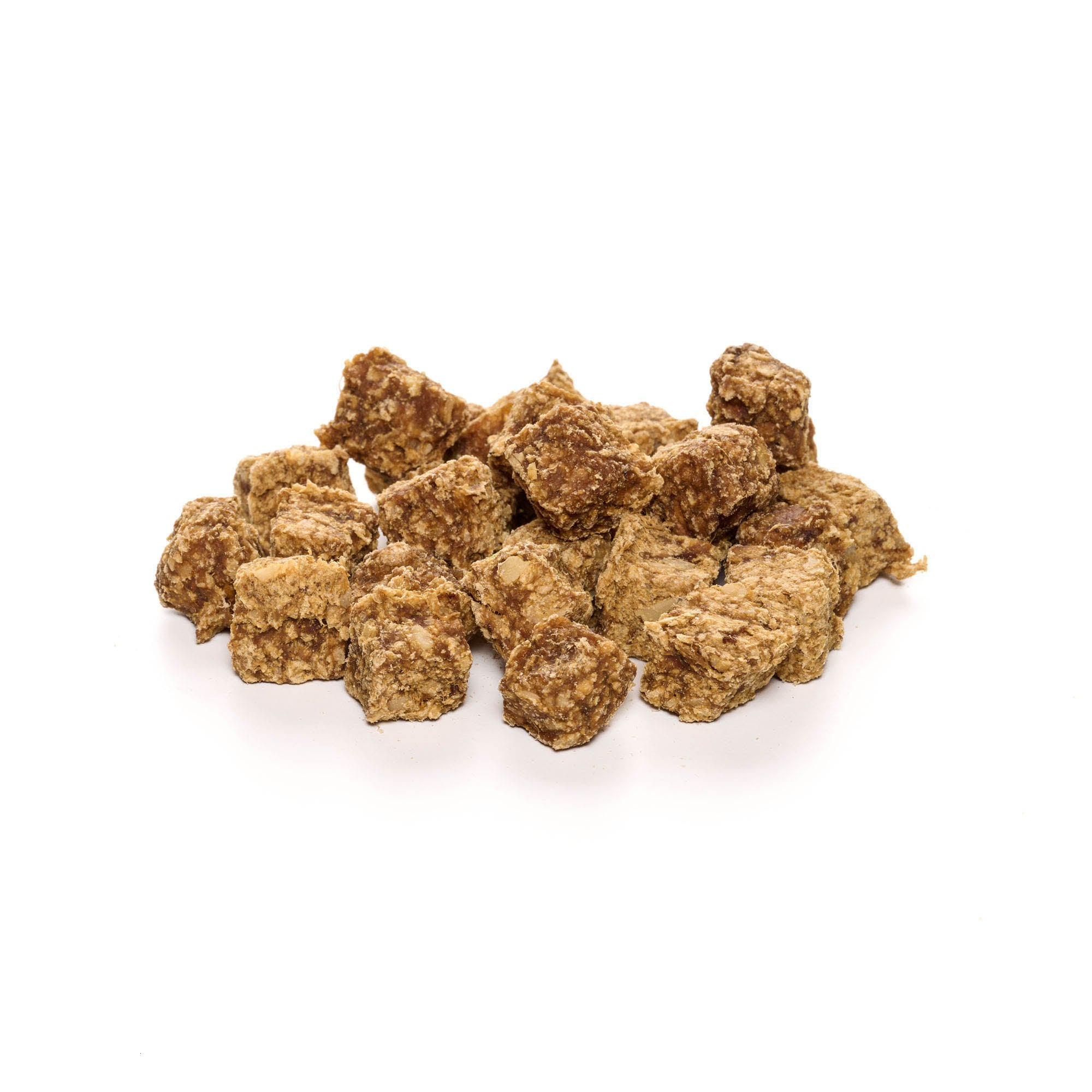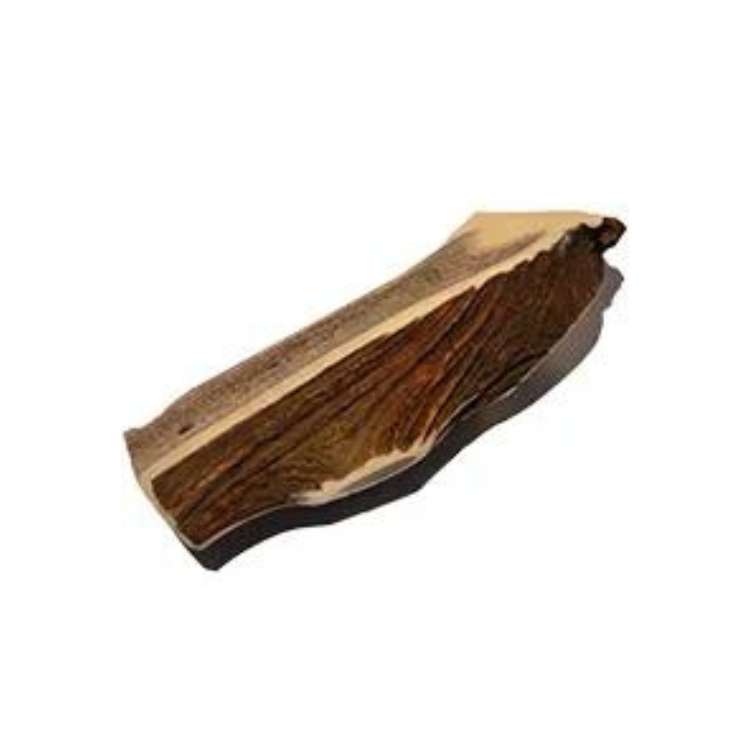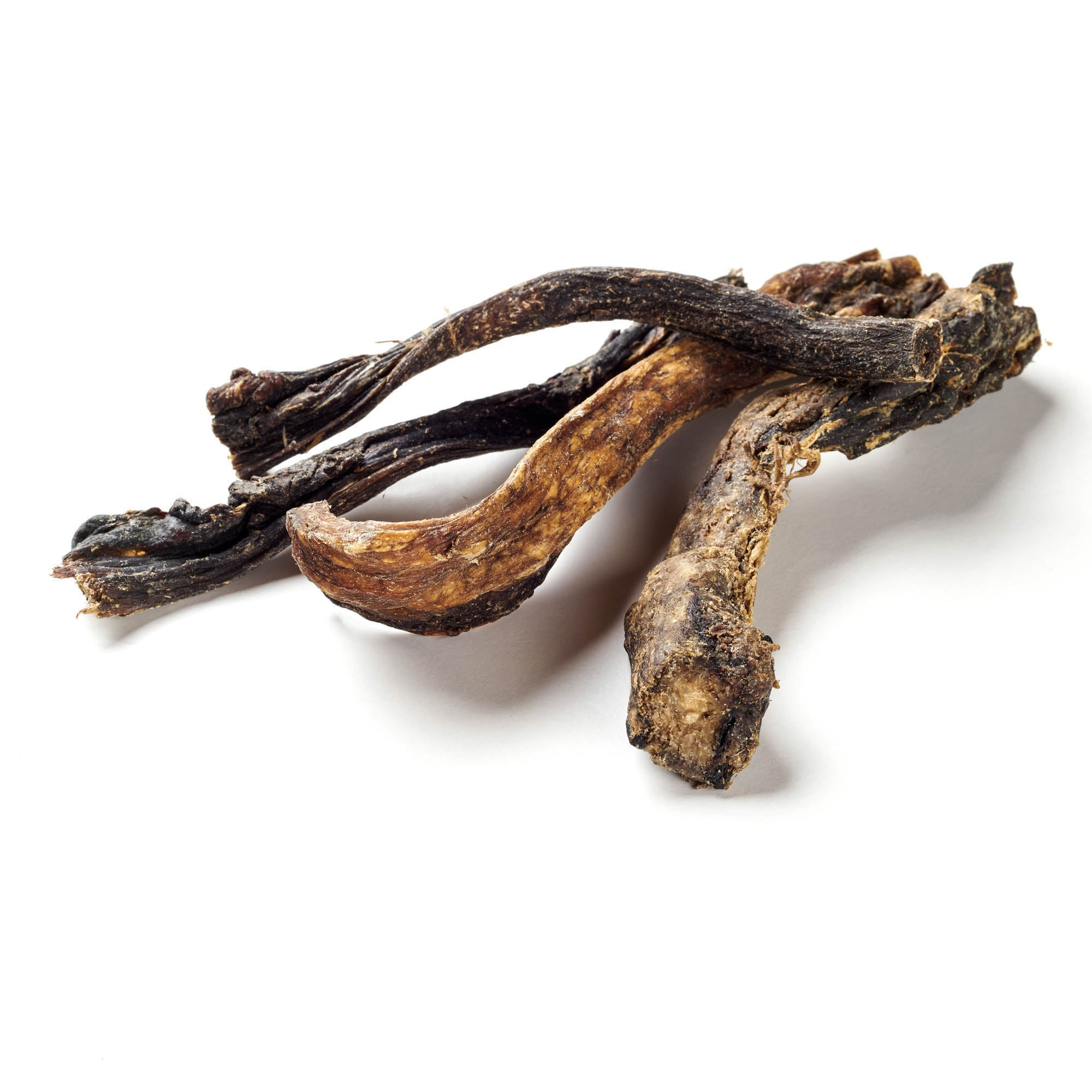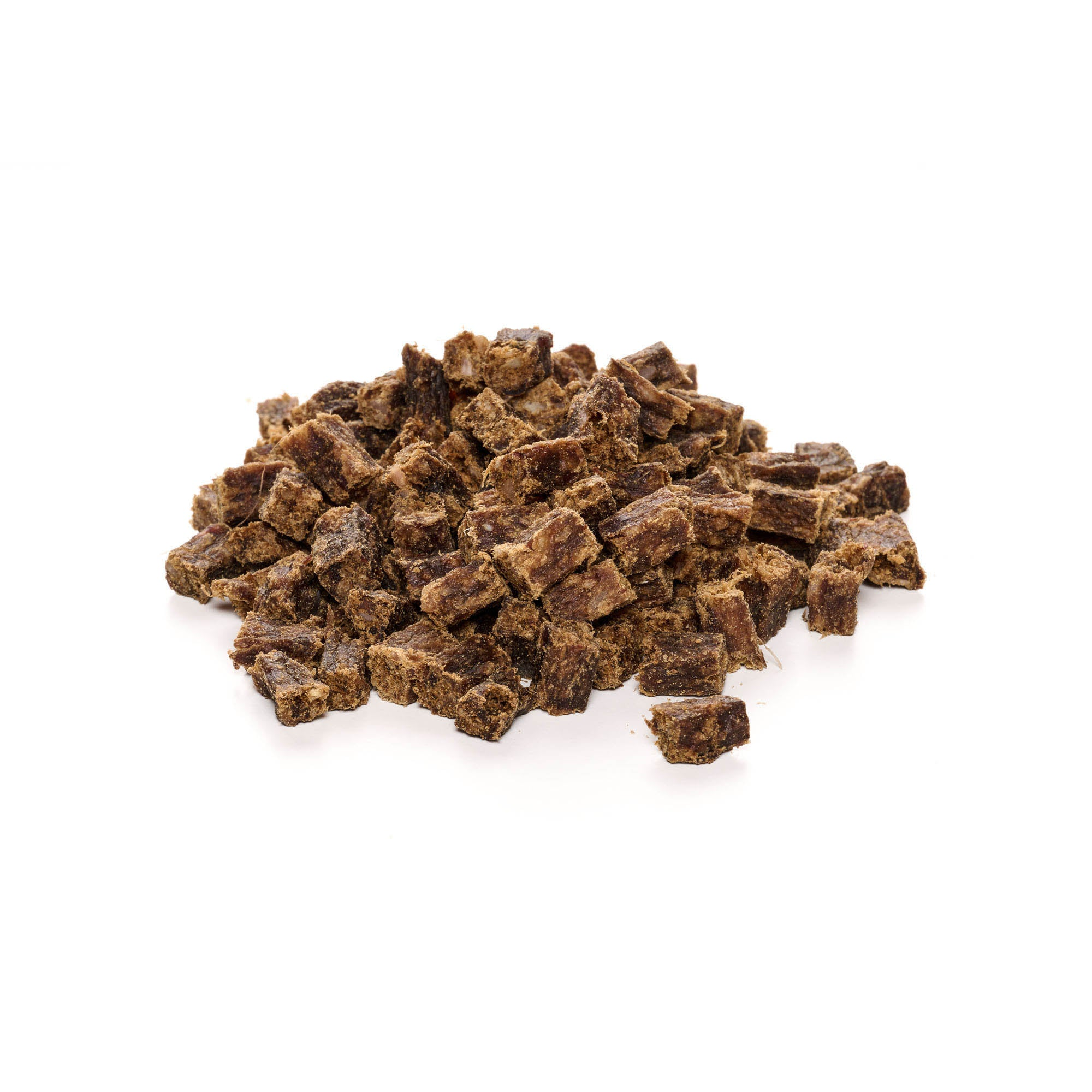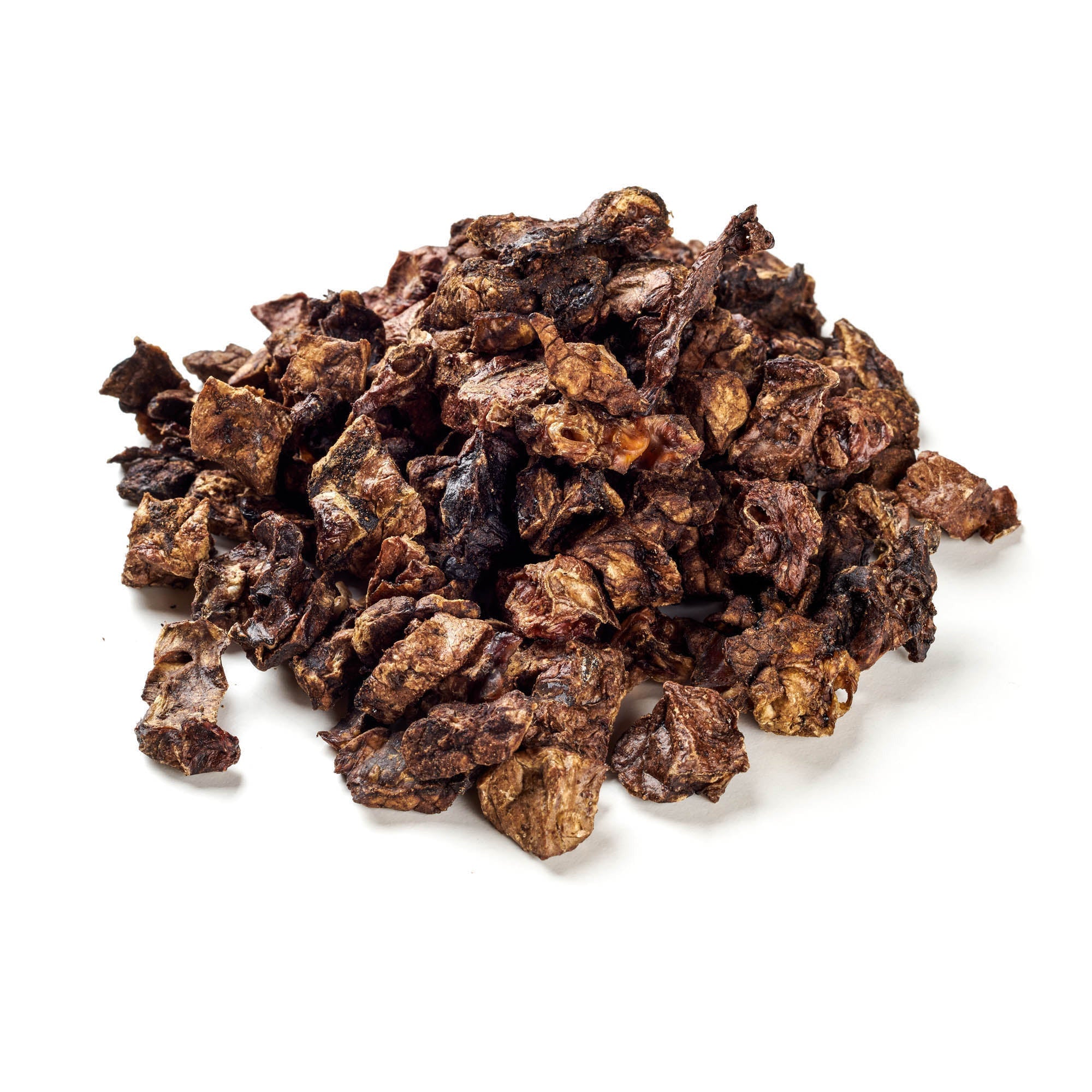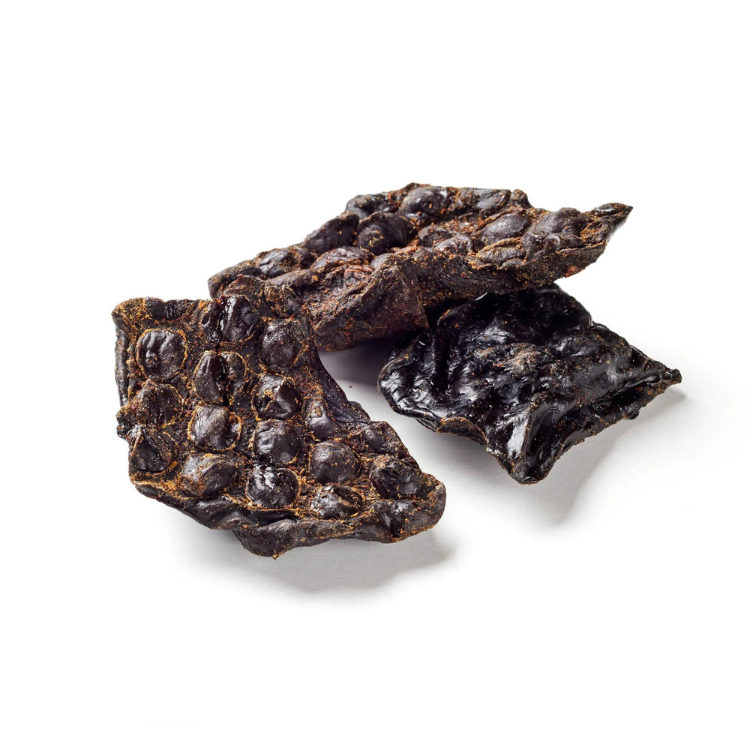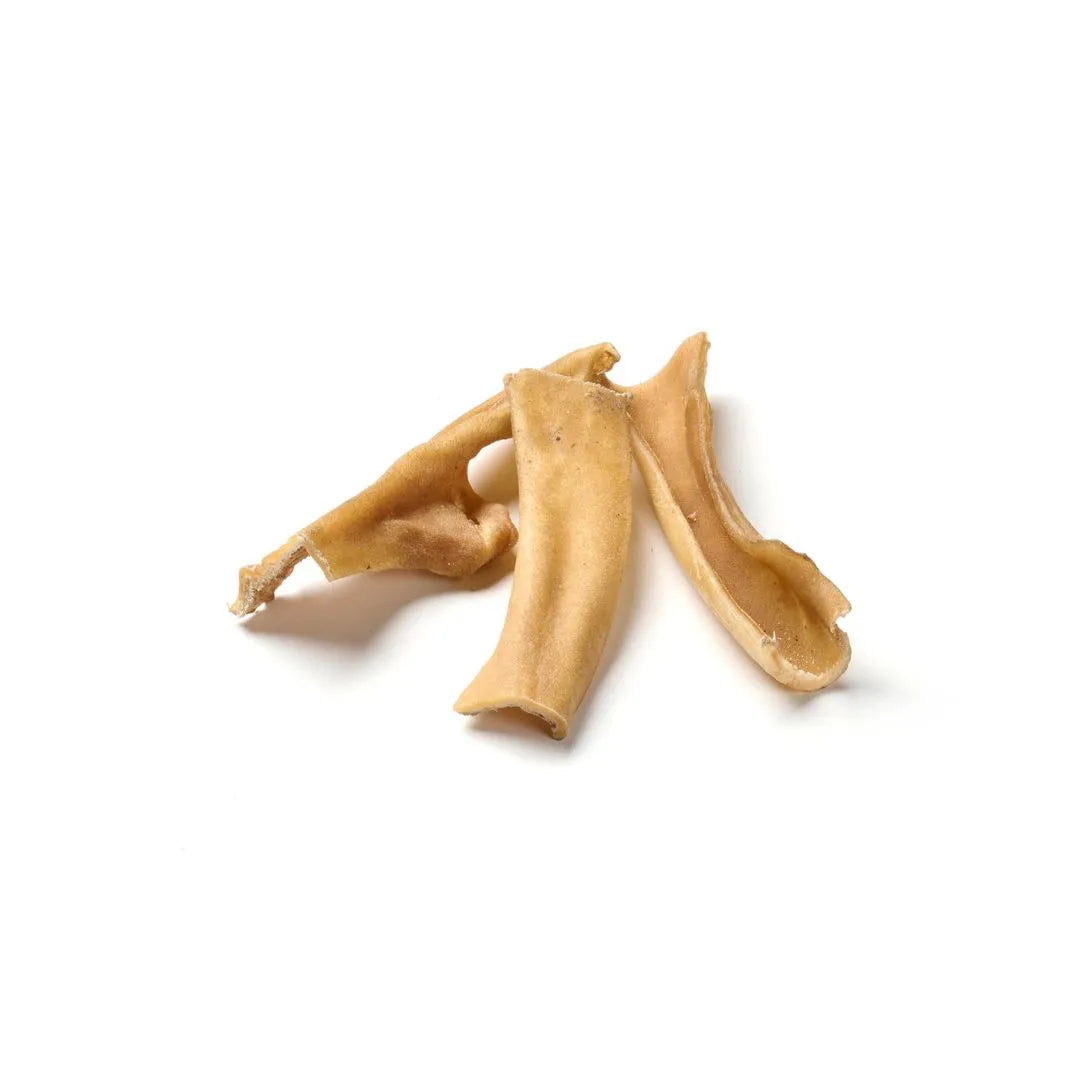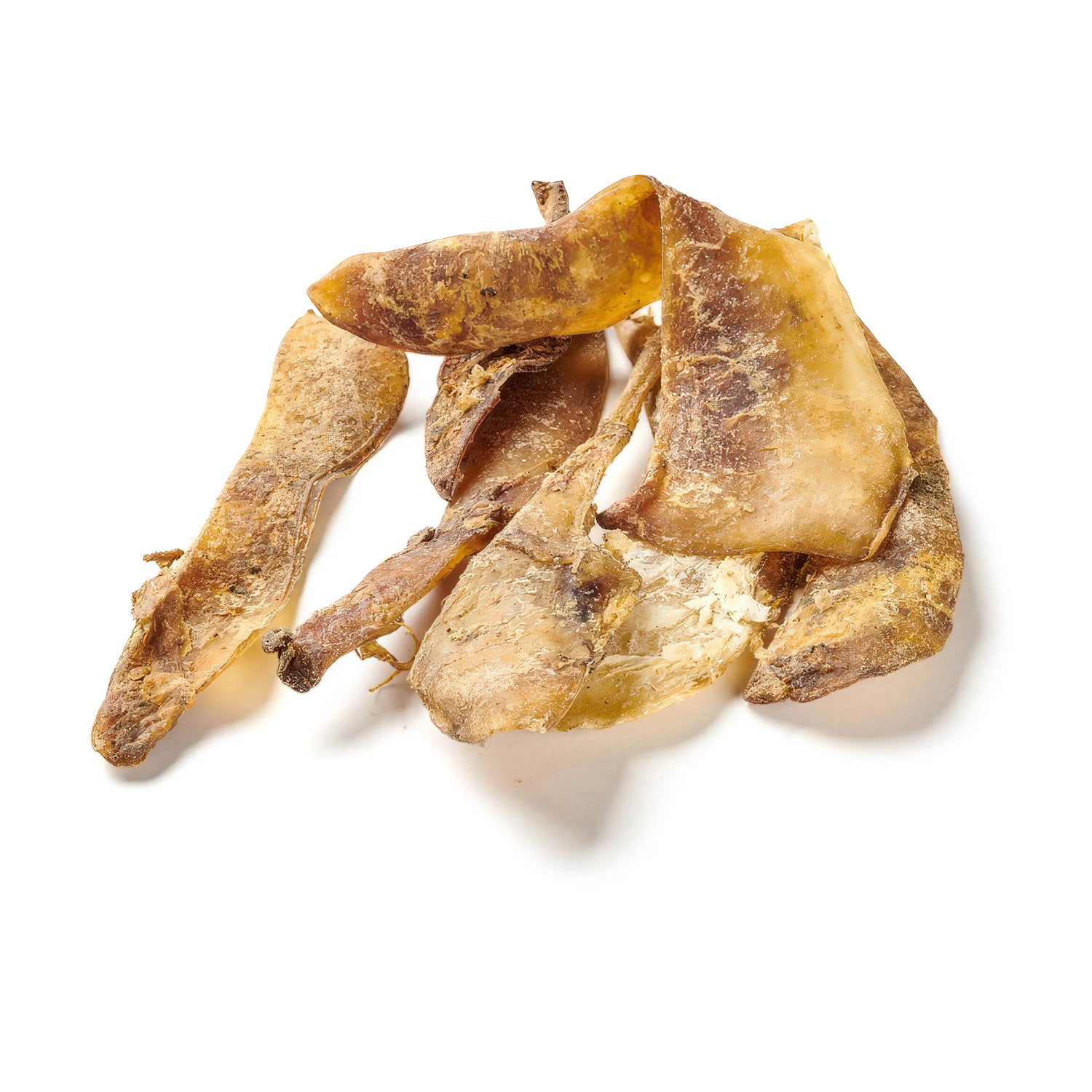
Dogs on New Year's Eve - avoid fear and panic
Share
Every year, New Year's Eve is the highlight of the year for many people. Although the use of fireworks to mark the turn of the year is gradually coming under criticism, there is no end in sight. This year was once again greeted with a great deal of noise. What is a joy for some annoys others, and dog owners in particular are annoyed by the loud bangs.
For many dogs, New Year's Eve is a torment that is associated with fear. There are a few tips and tricks that can help you deal with the fireworks at the end of the year.
Content: Dogs on New Year's Eve
Delicious dog snacks for pure enjoyment are available from us!
Why is New Year’s Eve a problem for dogs?
Everyone probably knows that dogs can hear and smell much better than we humans. Even for us humans, the colorful spectacle on New Year's Eve is often too loud and often smells unpleasant. Contrary to popular belief, dogs do not hear louder than we do. Because dogs can hear a wider range of frequencies than humans, they simply hear more sounds.
For comparison:
- Humans hear frequencies of 20 – 20,000 hertz
- Dogs hear frequencies of 15 – 50,000 hertz
It's no wonder that dogs are simply overwhelmed by all the noise. What's more, dogs don't switch off their hearing even when they're sleeping. It's a simple protective mechanism that makes them jump at every loud bang.
When it comes to the sense of smell, the difference between two-legged and four-legged creatures is even clearer. While humans have around 20 million olfactory cells, dogs have between 125 and 220 million. Since dogs primarily use their sense of smell to orient themselves, the smell of fireworks is not very helpful. Some people like the smell of sulphur, but most people can't stand it. And dogs are usually not very fond of it either.
Dogs not only have to contend with the noise, but also with the rumors on New Year's Eve. Although not all dogs are affected by this, many four-legged friends are very afraid of the turn of the year. This fear can also arise after there have been no problems for several years - and vice versa.
How do I know if my dog is afraid of New Year’s Eve?
Most dog owners know their four-legged friends so well that they quickly recognize when they are afraid. Of course, dogs behave very individually and while some dogs are just a little anxious and seek protection from their owner, others hide under the bed in panic.
Typical behavior of anxious dogs:
- Flat ears
- Pinched tail
- Restlessness & Tremors
- Heavy panting
- Crouched posture
- Wide open eyes & dilated pupils
- Loss of appetite
- Elongated mouth gap
Dogs with one or more of these symptoms should be given special attention on New Year's Eve. But calming a panicked dog on New Year's Eve can be a real challenge. Going outside and banning people from setting off fireworks is unfortunately not going to work.
What helps against dogs’ fear on New Year’s Eve?
In many places, firecrackers and rockets are already being set off in the days before New Year's Eve. In large cities in particular, New Year's Eve is not just a one-day event. Test shots are fired days before and it is not uncommon for there to be a deafening bang - right nearby. Dogs can react with extreme panic in such situations and even well-trained four-legged friends may then flee.
Therefore, the dog should not be let off the leash on the days before and after New Year's Eve. At least not in the city, because a panicked dog has run in front of a car too quickly. But the leash also gives your dog a certain sense of closeness and security and is therefore certainly useful.
To avoid the greatest stress caused by fireworks, you should choose quieter times of day for your daily walk. It is especially better to hide indoors in the early evening hours and into the night.
When walking your dog, be aware of dangerous remains such as broken glass or unexploded bombs.
Even if you would rather be outside with your friends, as soon as things start getting heated at midnight, you should be with your dog and support him. Direct contact is very important for your dog. He needs a person to relate to who can tell him that everything is OK.
High-quality dog chews for your faithful companion can be found here!
If your dog is afraid of the noise on New Year's Eve, you can and should comfort your dog. Just like us humans, dogs release the hormone oxytocin when we stroke them. This hormone lowers the stress hormone cortisol and thus ensures relaxation. In such a stressful situation, you should give your four-legged friend all the attention and affection you can muster. Otherwise, the relationship of trust between you could be permanently damaged.
More tips for dog owners on New Year's Eve
The most important thing by far is to show your dog calmness and composure. All efforts to calm the dog down will be in vain if you yourself are jumping around the house like crazy. It is important for your dog that you convey to him that everything is OK. Only if you radiate calmness can your four-legged friend also calm down.
Doors, windows & shutters
Depending on the furnishings in your home, closed windows and shutters can block out a lot of the noise. Even though you can still hear the fireworks, many dogs react positively to them. The shutters not only provide additional insulation, but also protection from the bright flashes of light, which are also frightening for dogs. A curtain can therefore be helpful if your windows don't have shutters.
Provide distraction
It sounds paradoxical, but in addition to trying to block out the noise from the fireworks, distraction in the form of television or radio can be very helpful in calming the dog. Or rather, things that he is already familiar with. This could also be the dishwasher or washing machine or an instrument and music that you can use to calm him down. Of course, you shouldn't overdo it - otherwise your four-legged friend will be even more stressed afterwards.
Treats & chews with fine smells
Many dogs, if they are not completely unsettled, can readily be bribed with treats or fine chews. This can make all their worries and fears disappear. Chews that are fun to chew for a long time are particularly suitable for this. They keep the furry friends busy for quite a while.
This is also a great way to play little tracking games in the apartment. A great way to provide distraction, at least for a short time.
Lucky for dog owners, they have it so easy.
Sedative medication for dogs?
Such panic attacks, such as those suffered by some dogs on New Year's Eve, can lead to serious trauma. A sedative medication can therefore be very helpful and not only treat acute anxiety attacks. It can also prevent a traumatic experience. And there are now great herbal sedatives.
- CBD oil for dogs – CBD is trendy in many areas. The active ingredient from the female hemp plant is becoming increasingly popular in cosmetics, but especially in the medical field. It can have an analgesic, antispasmodic, anti-anxiety and calming effect.
- Valerian – Valerian has been known for centuries for its calming effect. Unlike in humans, however, the herb does not have a direct effect on dogs and only takes effect after about 5 days.
- Hops – the hops used in beer can also have a calming effect. However, since its effect is not very strong, it can at best help to calm you down.
- Lavender – Another very well-known herb that can help is lavender.
- St. John's wort is also considered to be calming and is even said to help with depression. In combination with valerian, it can have a very calming effect.
- Bach flowers – some dog lovers swear by Bach flower globules
IMPORTANT: Never combine pharmaceutical medications with St. John's Wort and Valerian.
The resulting interactions can be fatal. You should discuss all recommended advice with your veterinarian . They can give the best assessment and inform you about dosages and incompatibilities .
Pheromones can also help
Another option is so-called pheromones, which are distributed in the air via odor atomizers. There are also sprays, tablets or collars. These pheromones are based on messenger substances that the mother dog releases after giving birth to her puppies in order to calm them down. The advantage of this method is that it works relatively quickly.
Dogs that are extremely afraid
In very extreme cases, none of the methods mentioned above will help. Owners of such extremely anxious or even traumatized dogs should prepare for the New Year early on, as some medications require a certain amount of time to start working. In this case, you should definitely seek advice from a vet.
Well-known drugs include imepitoin and dexmedetomidine. The drug acepromazine has fallen into disrepute because it merely paralyzes the four-legged friend and makes him even more sensitive to noise.
Therapy for anxious dogs?
Dogs are also very receptive to therapy and anxiety can be treated therapeutically. Not just because of New Year's Eve, by the way, but also because of many other things that dogs can react anxiously to. These can include a thunderstorm or a large crowd. In the long term, this is certainly the best method for dealing with all the stressful situations of everyday life.
There is a form of therapy called desensitization, where dogs are slowly accustomed to problematic noises. For example, the fireworks on New Year's Eve. A video from the Internet with the corresponding background noise is first played quietly to the four-legged friend. If he tolerates the volume well, it can be increased little by little. However, if he reacts fearfully, you should take a step back. Even if this method requires time and a lot of patience, it can be very helpful and provide relief. Remember, however, that you should not start this exercise a few weeks before New Year's Eve, but a few months beforehand.
Conclusion
There are a few other examples of how you can give your four-legged friend a peaceful New Year. Some dog owners wrap a scarf around the dog's ears or build a soundproof cave out of cardboard boxes, blankets and pillows. Anything that offers protection and security is welcome and nothing stands in the way of your creativity. Your dog should just always feel comfortable and not experience any more stress than before.
Anyone who has persistent problems with their dog's anxiety should consider behavioral therapy for dogs. These can be treated and can even get worse without treatment. But many dogs can be calmed down without much effort or simply get used to the noise. With our tips and tricks you can now make New Year's Eve a little more pleasant, but if you are not a fan of loud fireworks and all the hustle and bustle anyway, a short vacation might be the best solution for you and your four-legged friend. The more remote, the better!
Treat your dog to something special with our chew products!

